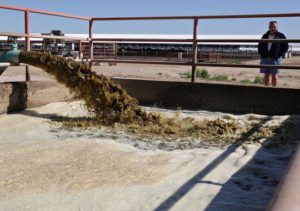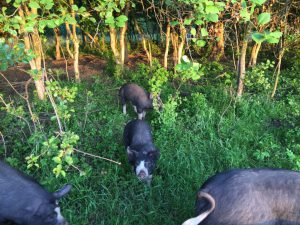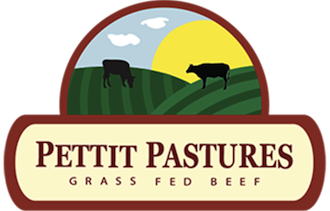True Cost of Pork
So Many Pigs, So Little Fresh Air.
Most farmers make great neighbors. But if your farm includes thousands of pigs confined to buildings, and stinky outdoor anaerobic lagoons to hold all the pig waste, it’s difficult to be neighborly.
A jury just delivered a verdict worth more than $50 million to ten plaintiffs who live near such a farm. The neighbors of a North Carolina pig farm sued on the basis that the repulsive stench from the huge operation spoiled their quality of life.

Surprisingly, they won. The award was $75,000 each in compensatory damages, plus $5 million each in punitive damages!
The lawsuit was filed against Smithfield Foods, one of the world’s largest pork producers. Interesting, the suit didn’t name the actual farm operator. Instead, they chose to go after Smithfield, since it dictates the methods by which their “independent” producer farmers must raise their animals.
Of course, collecting those awards will be another story. Smithfield will appeal the verdict. They have the politicians on their side in North Carolina.
Lawmakers, with financial ties to the hog industry, passed a law over the governor’s veto which limits the amount of punitive damages to three times the compensatory damages. That would be a far cry from the $5 million awarded to each by the jury.
This is just an other case where the desire to produce cheap food and high corporate profits leads to large scale production methods where society subsidizes the cost.
An environmental mess is created because it cheaper to cram thousands of pigs into buildings and pump their waste into open lagoons rather than humanely pasture them on appropriately sized pieces of land where their manure would actually be beneficial to the pastures.
No one wants to live near huge lagoons of pig waste. And in this case, the jury rightly judged that there should be massive costs imposed upon the offending business for the ongoing mess they created.
If this approach became the rule, rather than the exception, the cost of CAFO meats would increase dramatically to represent the real cost to society.
All of a sudden, the pricing of grocery store pork, beef and chicken would be on a par with that of small farms producing wonderfully pastured meats in a humane, environmentally sensitive way.
While no one likes paying more for things we buy, we all need to realize that food production methods really matter. The full cost of production should be paid by the consumers, not the neighbors of the producers.

Here at Pettit Pastures we rotationally graze our pigs in wooded pastures. This method closely resembles the way wild pigs behave and instead of polluting the land our pigs actually improve the soil and water cycle as we graze them.
Our method of raising pigs takes a little more care and a little more work, but it makes some of the best tasting pork you will ever have! If you are interested in ordering a half or whole Berkshire pig click the link below to reserve yours now. We will have a group ready in late July and another ready in the fall.

